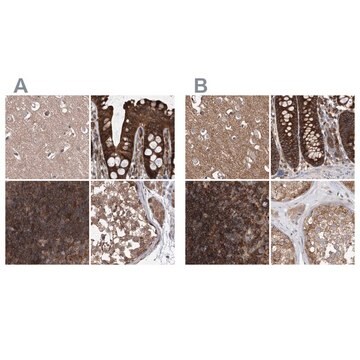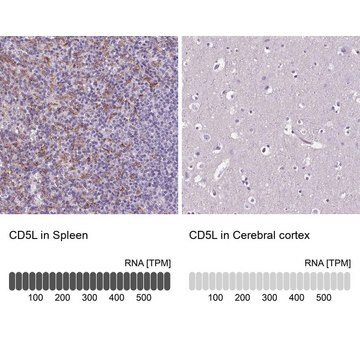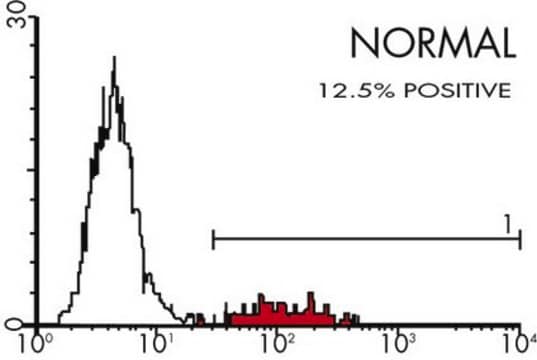SAB4600214
Anti-Mouse IgG (H+L), highly cross-adsorbed, CF™ 770 antibody produced in goat
~2 mg/mL, affinity isolated antibody
About This Item
Produits recommandés
Source biologique
goat
Niveau de qualité
Conjugué
CF™ 770 conjugate
Forme d'anticorps
affinity isolated antibody
Type de produit anticorps
secondary antibodies
Clone
polyclonal
Forme
buffered aqueous solution
Espèces réactives
mouse
Concentration
~2 mg/mL
Technique(s)
flow cytometry: 1-10 μg/mL
immunocytochemistry: suitable
immunohistochemistry: suitable
indirect immunofluorescence: 1-10 μg/mL
Fluorescence
λex 770 nm; λem 797 nm
Conditions d'expédition
dry ice
Température de stockage
−20°C
Modification post-traductionnelle de la cible
unmodified
Spécificité
Immunogène
Caractéristiques et avantages
Forme physique
Notes préparatoires
Informations légales
Clause de non-responsabilité
Vous ne trouvez pas le bon produit ?
Essayez notre Outil de sélection de produits.
Code de la classe de stockage
10 - Combustible liquids
Classe de danger pour l'eau (WGK)
WGK 2
Point d'éclair (°F)
Not applicable
Point d'éclair (°C)
Not applicable
Faites votre choix parmi les versions les plus récentes :
Certificats d'analyse (COA)
Vous ne trouvez pas la bonne version ?
Si vous avez besoin d'une version particulière, vous pouvez rechercher un certificat spécifique par le numéro de lot.
Déjà en possession de ce produit ?
Retrouvez la documentation relative aux produits que vous avez récemment achetés dans la Bibliothèque de documents.
Notre équipe de scientifiques dispose d'une expérience dans tous les secteurs de la recherche, notamment en sciences de la vie, science des matériaux, synthèse chimique, chromatographie, analyse et dans de nombreux autres domaines..
Contacter notre Service technique






